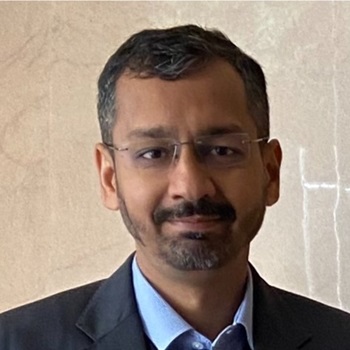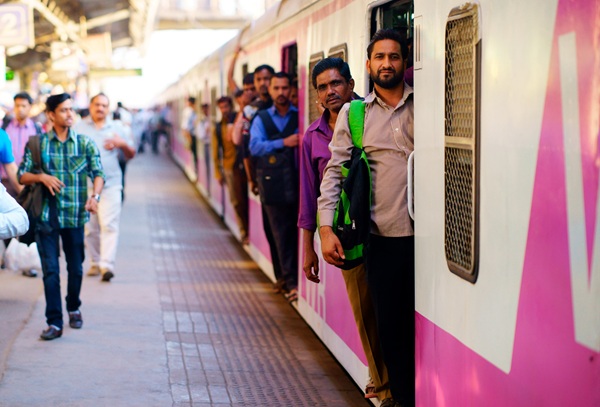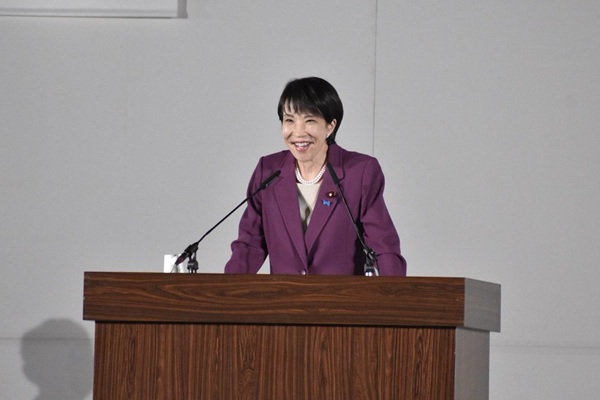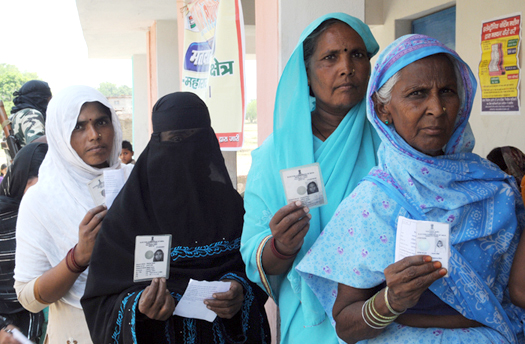.png)
SarciSense: The Self-Improvement Circus — How ‘Becoming Better’ Became the New Anxiety
We no longer live life, we optimise it. The modern Indian is busy upgrading everything from fitness to feelings, except peace.


Dr. Srinath Sridharan is a Corporate Advisor & Independent Director on Corporate Boards. He is the author of ‘Family and Dhanda’.
November 9, 2025 at 6:38 AM IST
We used to be content with being decent.
Now we want to be extraordinary, even at self-care. Everyone wants to “find themselves,” but nobody wants to admit they might not like what they find.
The social-media is our new temple, therapy our confessional, and self-help our scripture. We’ve built an entire religion where the god we worship is ourselves — and even that god keeps demanding upgrades.
There was a time when self-improvement was a modest personal affair. You read a few more books, learnt to cook something edible, maybe tried not to lose your temper in traffic. It was quiet, probably even clumsy, and private — the kind of effort nobody noticed, least of all yourself.
Then someone discovered there was money in guilt, and the rest is motivational history.
Today, self-improvement is an industry with dashboards, deadlines, and discount codes. Everyone is “on a journey” — to be calmer, fitter, richer, or just less visibly confused. But the remarkable thing about this national obsession with betterment is how unhappy everyone looks while doing it.
We’ve turned life into a software update. Version 2.0 — now with morning affirmations. Version 3.1 — emotional regulation. Version 4.0 — inner child healing. There’s always a shinier version of you waiting, if only you buy the right supplement, download the right app, or attend the right retreat in Rishikesh that promises enlightenment by Sunday afternoon.
Self-reflection once needed silence. Now it needs Wi-Fi. We’ve stopped thinking and started subscribing. Our gurus are influencers with ring lights. Our enlightenment comes with a coupon code.
India has always been obsessed with transformation. From the monk in the cave to the CEO in the corner office, we’ve worshipped the idea of becoming someone else — preferably someone with better posture and more followers. But somewhere, evolution turned into exhaustion. Our grandparents believed in patience; we believe in productivity. They worked hard because they had to. We optimise everything because we don’t know what else to do with ourselves.
We no longer wake up — we “own our mornings.” We don’t take walks — we “close our rings.” We don’t rest — we “recharge.” Even sleep now has a performance metric, as if the point of dreaming is to beat a previous record. In trying to become more evolved, we’ve become absurd — a civilisation that needs an app to remind itself to breathe.
Scroll through any social media feed and you’ll find the same sermon, just in different fonts. “Be your best self.” “Manifest your dreams.” “Don’t settle.” It sounds uplifting until you realise it never ends. You’re always one course away from clarity, one journal away from gratitude, one detox away from peace.
And the middle class has embraced it with religious fervour. Every decade, we find a new virtue. In the 80s, it was education. In the 90s, ambition. In the 2000s, consumption. Now it’s self-actualisation. We can’t just live — we must improve. We can’t simply exist — we must explain our evolution in captions.
The performance of peace has replaced the pursuit of it.
Even therapy and meditation, those last surviving refuges from performance, have now joined the marketplace. Meditation is no longer a way to slow down; it’s a “tool for productivity.” Therapy isn’t about healing anymore; it’s about “unlocking potential,” as though the mind were a badly coded app. You can’t just sit quietly now. You must sit quietly with purpose, preferably with a guided playlist and a progress chart.
We’ve turned every emotion, every sigh of rest, into a deliverable. Sadness must become “resilience,” fatigue must lead to “growth,” and even joy is expected to show measurable outcomes. The irony is that in trying so hard to fix ourselves, we’ve become more fragile — a generation that can’t endure discomfort without first naming it and then monetising it.
Middle-aged Indians are the most eager converts to this cult of betterment. They call it “investing in myself,” but it’s really panic dressed as purpose. You see them at sunrise with green smoothies, yoga mats, and mantras, telling themselves they’re “finally making time for me.” But stillness frightens them. Stillness means facing everything you’ve avoided in motion — the fatigue, the emptiness, the doubts. So they keep moving, because movement looks like meaning.
This generation was taught that being busy is the proof of being alive. When the noise stops, the fear begins.
The younger generation, meanwhile, has its own burden — the tyranny of self-growth. They are fluent in the language of “healing,” “boundaries,” and “growth mindset,” but weary from trying to live up to it all. They’ve grown up in a world that turns every feeling into content and every moment into comparison.
They call it “living intentionally.” What it really is, is pressure in soft pastel fonts. They can’t rest without guilt, can’t feel without posting, can’t fail without turning it into a “lesson.” As one twenty-something told me recently, “I don’t even know what I want anymore — I just don’t want to fall behind.”
That’s the truth behind all this improvement. It’s not ambition. It’s fear — fear of irrelevance, fear of being ordinary, fear of standing still in a world that won’t stop moving.
Even leisure has become labour. We can’t just go on holidays — we must “reset.” We can’t just read — we must “consume meaningful content.” Every hobby is a project, every sunset a post. We’re so busy documenting joy that we’ve forgotten how to feel it.
And capitalism, ever resourceful, has monetised this unease. There’s an app for mindfulness, a tracker for happiness, a coach for confidence. Calm now comes with a subscription plan. It’s brilliant marketing — convince people they’re incomplete, then sell them wholeness.
The problem with self-improvement is that it never ends, because it was never designed to. You’ll never be calm enough, grateful enough, or productive enough. The finish line keeps moving because the exhaustion pays someone’s salary. You’re not really chasing peace; you’re fuelling an economy.
Real growth is rarely aesthetic. It’s awkward, private, often dull. It doesn’t sparkle on social media because it happens in rooms without witnesses. It begins the moment you stop trying to become, and start allowing yourself to exist. Maybe that’s the next upgrade — not a better version of you, but a gentler one.
To read without underlining a quote.
To cook without counting calories.
To fail without branding it a “lesson.”
To rest without apology.
Perhaps that’s the joke of it all. We’re so obsessed with becoming better that we’ve forgotten how to be alive.
We don’t need to be constantly improving. We just need to remember what it’s like to be human.



